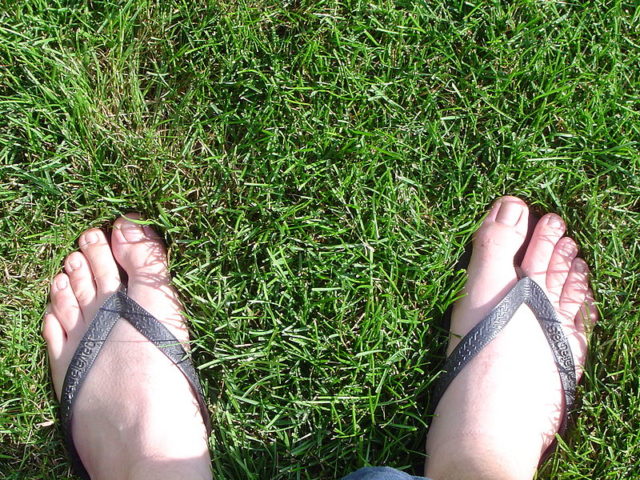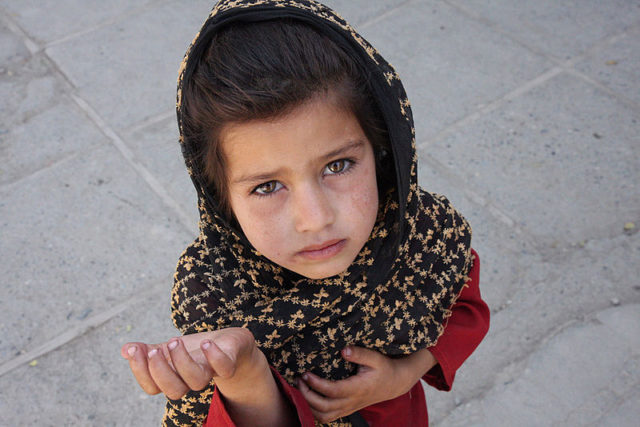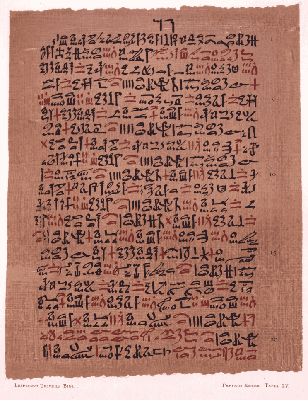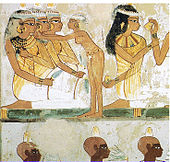Every culture in history has its own specific set of traditions and customs, here are seven from ancient Egypt.
7 The Eye of Horus

The all Seeing Eye in the Lord of the Rings is believed to be based on the ancient Egyptian symbol that is known as the evil eye. The ancient symbol itself, however, isn’t actually as scary as it is depicted in the books and in the movies. The symbol was originally a sign that promised good health before it was eventually altered by the modern citizens of the country as protection from evil.
It is said that the eye itself sees the passion of man, and if you are not proud and happy with your present condition, the eye will take away anything that it sees and removes it from the beholder. This could be the root cause as to why some present day citizens still look back to the original meaning of the symbol and use it for the fortune of health and as a safeguard from evil beings.
6 Keeping shoes upright.

Ancient Egypt is known as a pretty superstitious culture, and their attitudes towards mundane everyday objects are no exception. It was believed that anyone who’s shoes were turned upside down would suffer from bad luck. This is because turning the dirty soles of your shoes to the sky was considered to be a disgrace to the gods.
5 Giving Money to the Poor

Giving money to the poor is a very important part of Egypt’s culture and the history of good deed goes back into the ancient days of the pharaohs. It is said that Maat, the god of harmony, would show everlasting to the people who gave back to the ones less fortunate than them. Even though Egypt is heavily rooted with Islam, it’s important to understand that giving and helping has been beautifully a part of the ancient culture since it rose to civilization. Today, it still gives Egyptians great pleasure to please their gods which leads us to the next ancient tradition.
4 Language

The Egyptian dialect is said to be unparalleled with its combination of vibrancy and distinctiveness, with a perfect blend of ancient Arabic and Egyptian and a touch of modern French and English.
The culture is so exquisite that it has words with no derivation from other languages. The words are so profound that they are still used by its citizens. With words like ignore, slipper, eating and even patting, the language is filled with original words that are still spoken today. It’s hard to look past the importance of Egyptian language inside of the history of man.
3 Eyeliner

Dark eyeliner was the invention of ancient Egypt and is dated to about three millenniums B.C. and was known as kohl. The dark eyeliner was a display of royalty in the country’s ancient culture. It was first created using a mineral named stibnite, which is thought to have been used to ease eye damage from the sun due to the intense desert conditions. Typically the top of the eyes would be covered with the dark fancy mineral while the bottom of the eye would be applied in green. It is also speculated that if the kohl was applied a certain way, it symbolized marriage and could have been used in a way which is compared to the symbol of a wedding ring. Today, ladies decorate their eyes with kohl but in the modern era, it does not indicate their marital status.
2 The Seboa

A week after a child has been born, a party was thrown for the new born baby. The party is known as seboa, and it stems back to an ancient word whose means week. The purpose of the gathering is to welcome the child into the world and is also known as a celebration of life for both the child and the mother. It’s a baby shower, but the celebration was more of a family tradition to welcome a new family into the world.
A weird aspect of the party is that people would shake the baby to rid its body of dark spirits and to protect the baby. It is another ancient tradition that the Egyptians partook in ages ago.
1 The Nile

In the off chance you ever make it into orbit, or if you happen to see a satellite image of the ancient country, you’ll probably notice a lot of empty desert mixed in with random architecture and cities all located around a giant area of water. This waterway is known as the Nile River and it the backbone of the country. Without the giant river, there would be no chance of civilization or modern civilization as we know it.
Without the river, pharaohs would not have been able to dominate trade, make advancements in language or even create a regional economic powerhouse and possibly disconnecting countries and cultures from each other. When the river inevitability flooded, the ancient desert residents used the opportunity to water their crops. Nowadays, the country still takes great pride in the Nile floods and uses the water to generate electricity for the country.
